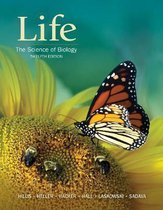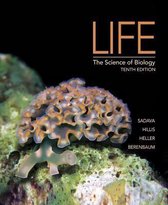Discovery-Based Learning in the Life Sciences
Afbeeldingen
Sla de afbeeldingen overArtikel vergelijken
- Engels
- Paperback
- 9781118907566
- 18 september 2015
- 184 pagina's
Samenvatting
For nearly a decade, scientists, educators, and policy makers have issued a call to college biology professors to transform undergraduate life sciences education. As a gateway science for many undergraduate students, biology courses are crucial to address many of the challenges we face, such as climate change, sustainable food supply and fresh water, and emerging public health issues.
While canned laboratories and cook-book approaches to college science education do teach students to operate equipment, make accurate measurements, and work well with numbers, they do not teach students how to take a scientific approach to an area of interest about the natural world. Science is more than just techniques, measurements, and facts; science is critical thinking and interpretation, which are essential to scientific research.
Discovery-Based Learning in the Life Sciences presents a different way of organizing and developing biology teaching laboratories to promote both deep learning and understanding of core concepts, while still teaching the creative process of science.
In eight chapters, this text guides undergraduate instructors in creating their own discovery-based experiments. The first chapter introduces the text, delving into the necessity of science education reform. The chapters that follow address pedagogical goals and desired outcomes, incorporating discovery-based laboratory experiences, realistic constraints on such laboratory experiments, model scenarios, and alternative ways to enhance student understanding. The book concludes with a reflection on four imperatives in life science research-- climate, food, energy, and health-- and how we can use these laboratory experiments to address them.
Discovery-Based Learning in the Life Sciences is an invaluable guide for undergraduate instructors in the life sciences aiming to revamp their curriculum, inspire their students, and prepare them for careers as educated global citizens.
- Provides several concrete and implementable discovery-driven laboratory schemes that faculty can adopt for their own courses
- Expands upon how one can go about revising or changing an existing course curriculum to incorporate a discovery-based approach
- Explores novel approaches to unify classroom content goals with student experiential approaches to learning the processes of science that are found in the laboratory
- Gives examples of successful approaches at both the introductory and the intermediate levels of instruction in the life sciences that can be readily adapted for use in multiple settings
For nearly a decade, scientists, educators and policy makers have issued a call to college biology professors to transform undergraduate life sciences education. As a gateway science for many undergraduate students, biology courses are crucial to addressing many of the challenges we face, such as climate change, sustainable food supply and fresh water and emerging public health issues.
While canned laboratories and cook-book approaches to college science education do teach students to operate equipment, make accurate measurements and work well with numbers, they do not teach students how to take a scientific approach to an area of interest about the natural world. Science is more than just techniques, measurements and facts; science is critical thinking and interpretation, which are essential to scientific research.
Discovery-Based Learning in the Life Sciences presents a different way of organizing and developing biology teaching laboratories, to promote both deep learning and understanding of core concepts, while still teaching the creative process of science.
In eight chapters, the text guides undergraduate instructors in creating their own discovery-based experiments. The first chapter introduces the text, delving into the necessity of science education reform. The chapters that follow address pedagogical goals and desired outcomes, incorporating discovery-based laboratory experiences, realistic constraints on such lab experiments, model scenarios, and alternate ways to enhance student understanding. The book concludes with a reflection on four imperatives in life science research-- climate, food, energy and health-- and how we can use these laboratory experiments to address them.
Discovery-Based Learning in the Life Sciences is an invaluable guide for undergraduate instructors in the life sciences aiming to revamp their curriculum, inspire their students and prepare them for careers as educated global citizens.Productspecificaties
Inhoud
- Taal
- en
- Bindwijze
- Paperback
- Oorspronkelijke releasedatum
- 18 september 2015
- Aantal pagina's
- 184
- Illustraties
- Nee
Betrokkenen
- Hoofdauteur
- Kathleen M. Susman
- Tweede Auteur
- Kathleen Susman
- Hoofduitgeverij
- Wiley-Blackwell
Overige kenmerken
- Extra groot lettertype
- Nee
- Product breedte
- 171 mm
- Product hoogte
- 9 mm
- Product lengte
- 243 mm
- Studieboek
- Nee
- Verpakking breedte
- 172 mm
- Verpakking hoogte
- 10 mm
- Verpakking lengte
- 245 mm
- Verpakkingsgewicht
- 294 g
EAN
- EAN
- 9781118907566
Je vindt dit artikel in
- Categorieën
- Taal
- Engels
- Boek, ebook of luisterboek?
- Boek
- Studieboek of algemeen
- Algemene boeken
- Beschikbaarheid
- Leverbaar
Kies gewenste uitvoering
Prijsinformatie en bestellen
De prijs van dit product is 66 euro.- Prijs inclusief verzendkosten, verstuurd door bol
- Ophalen bij een bol afhaalpunt mogelijk
- 30 dagen bedenktijd en gratis retourneren
- Dag en nacht klantenservice
Rapporteer dit artikel
Je wilt melding doen van illegale inhoud over dit artikel:
- Ik wil melding doen als klant
- Ik wil melding doen als autoriteit of trusted flagger
- Ik wil melding doen als partner
- Ik wil melding doen als merkhouder
Geen klant, autoriteit, trusted flagger, merkhouder of partner? Gebruik dan onderstaande link om melding te doen.








